Get Free Greeting Card Templates plus Ideas on How to Make Yours
Download Different Types of Crafting Templates and Get Options for Transforming Them. Includes Precautions and Proactive Steps to Help Prevent Messing Up Yours.
Greeting card templates are tools that help make it easier to put together your craft. They save you the time and stress of having to recreate concepts from scratch, especially when you need duplicates.
Thus, they are incredibly useful whether you choose to make your very own cards or instead use cardmaking instructions to put together an already existing one.
To Trace or Not to Trace: Tracing Methods to the Rescue
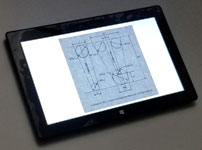
When your greeting card templates are guides either for placing your crafting pieces or for making cuts, then you may need to see through the template. Else, mistakes may arise.
In this case, you can draw or print using tracing paper and vellum paper. One exception is, if you're working with transparent or translucent materials, then you may not need the tracing paper because you can see the template through that material.
Apart from this, a light-box is another cool tool that could come in handy in these situations because it illuminates the outlines for easier tracing.
Templates Still Help Even When You Don't Need Duplicates
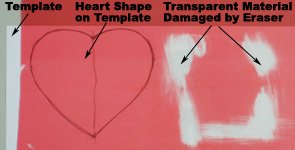
Indeed, greeting card templates are helpful when you're making intricate cuts or complex patterns, even if the crafting steps don't require them.
To illustrate, if you make mistakes while using specialty or expensive materials, you'll have to start all over.
However, if you make an error on a template, you can easily discard that template for another without using up your rare or costly material.
Rigid or Flexible Templates? Why Not Both?
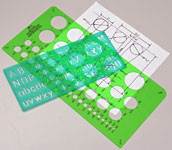
Flexible templates are typically accessible because you can easily print them off on different forms of paper. However, rigid ones still play roles that flimsy types cannot. Hence, it's always a good practice to use whichever type your craft demands.
Plus you can create one from the other and vise versa. For instance, xeroxing a rigid template gives you a flexible one.
Making Your Very Own Template? Then Consider This
In most cases, the greeting card sketches you create from your crafting designs and layouts are usually sufficient. However, there are times you need that sketch more than once as a template, even on the same cards.
Besides, you may even have to convert those templates into greeting card prototypes to better serve as visual aids to help your creativity.
So, if that template is for your eyes only, you can make copies of your sketches and designs using a copier or printer. However, if you're sharing it with others, it's best to convert it into a PDF or similar format to preserve your original intentions. Therefore, even if you draw, scan, or otherwise create your templates using common software, you should still save them as fixed formats before sharing.
Crafting Template Types and Examples
You can use these free greeting card templates to put together your craft, as shown in their related cardmaking instructions. Apart from that, they serve as examples to help you come up with your very own greeting card templates.
Art Type
This type of template helps with your greeting card art, even if you're only making one instead of multiple cards. Plus, it can help you define where your art perfectly fits on your craft.
An example is this cat in window art template⇗ used to make this thinking of you card.
Lettering or Calligraphy Type
When the intricate lines come together to form lettering styles, then a template could be the best way to handle that.
Examples include this "i" and "u" letter template⇗ for this Valentines' Day card.
Theme Type
This type of template defines one or more themes for you to apply. Plus, it is especially helpful when making multiple cards.
For instance, see the utensils theme template⇗ for this unique woven picnic invitation.
Instructional Type
This is where the template contains the steps to complete the piece.
The types of steps could have various ranges and applications.
For example, the steps could be inferred, as is the case with printables, where the instructions to fold and possibly cut the cards are implied. Or, the steps could have elaborate details.
Else, the directions could be somewhere in-between as sub-steps, such as in this instructional template for the origami tulips⇗ used for this Mothers' Day card.
Layout Type
The greeting card layouts are similar to design templates, except there are no intricate details yet. Thence, they are sounding boards for your creativity. As such, they are baselines from which you add your creative cards, styles, and flavors.
For example, we used this "two rectangles and one circle" layout template⇗ to make this Christmas symbols card.
Want more layouts? Not to worry, there are numerous other crafting design layout templates to choose from on this site.
Design Type
The Design template is similar to layout, except it has more details about what elements to put in each section.
Therefore, such design details eliminate any guesswork or doubt as to how the finished craft should look.
Sketch Type
This type of template is born the moment you need to use your greeting card sketches as guides for tracing or cutting.
Hence, they are usually for your eyes only. Thus, you ordinarily don't have to take them any further or try to convert them into PDFs.
For example, we used this original sketch template as the greeting card prototype for this Valentines' Day card.
Guide Type
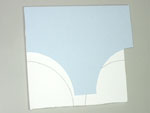
This is similar to cutouts, except it involves no cuts. Instead, you use this for correctly putting the elements in place. Thence, it sometimes requires tracing paper to add some transparency as already discussed.
Examples include paper stencils for spraying shapes. Besides, you can even use pieces of the craft as guide templates for creating other parts of the work like in this baby shower greeting card.
Cutout Type
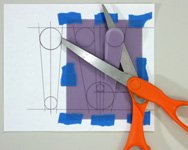
Cutouts are similar to guides, except you use them to handle your incisions. The same greeting card templates are sometimes used for both tasks, especially when working on the same cards. Also, tracing sheets sometimes come in handy here.
Examples include metal stencils that support your knife as you cut. Other instances comprise flimsy templates you cut along with the crafting materials after you've combined them.
Printable Cards Are Templates Too
Yes, they are. Why? Because the printout is not usually the final step. You still have to fold most of the printable greeting cards. Some you indeed have to trim before you bend, and some you have to cut after you fold. Even the postcard crafting format that requires no folds generally needs cuts to get the right size anyway. Thus, no matter what, additional steps typically exist.
So, Ready to Put the Crafting Templates to the Test?
Needless to say, different template types have various applications. Sometimes these functions even overlap.
Ergo, what other types of greeting card templates and applications can you visualize?
Recent Articles
-
Get Free Greeting Card Templates plus Ideas on How to Make Yours
Download Various Types of Greeting Card Templates and Get Options for Adapting Them. Includes Precautions and Proactive Steps to Help Prevent Messing Up Yours. -
Did You Notice the Revamped Homepage?
Indeed, it’s been a longtime coming, but the homepage makeover is finally here. For comparison, feel free to see the way it used to look as captured through the inescapable Wayback Machine Internet Ar… -
Free Card Greetings for Saying Hello and Goodbye in Your Greeting Card
Get ideas to personalize your greeting card salutations and valedictions because cool card greetings make great first impressions about your greeting card messages.
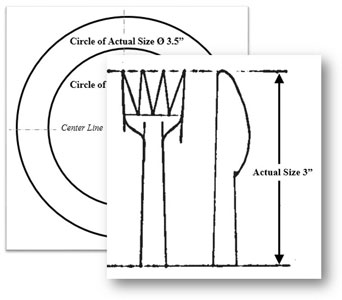
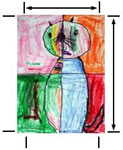

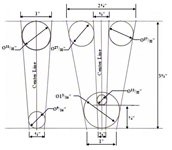

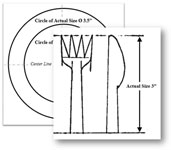

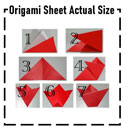
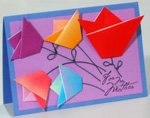

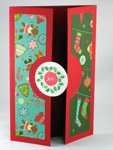
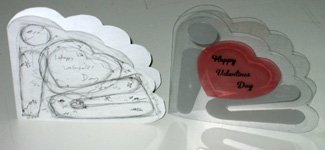
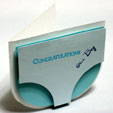



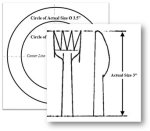
New! Comments
Have your say about what you just read! Leave us a comment in the box below.